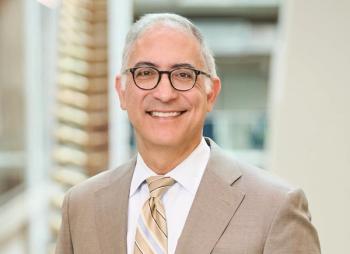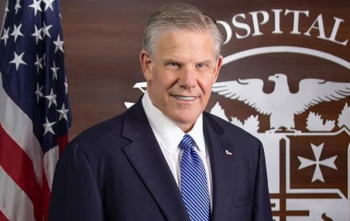
FTC opposes SUNY Upstate Medical University’s plans to acquire Crouse Health System
The Federal Trade Commission said the deal would lead to higher healthcare costs and lower quality. Federal regulators have applied more scrutiny to hospital deals.
Federal regulators are opposing SUNY Upstate Medical University’s planned acquisition of Crouse Health System in Syracuse, N.Y.
The Federal Trade Commission said this month that it objects to the request for a Certificate of Public Advantage from the New York State Department of Health for the proposed merger. The FTC said the state certificate would shield the merger from antitrust laws and potentially hurt consumers. Generally,
Beyond the question of the process, the FTC says SUNY Upstate’s acquisition of Crouse would be bad for patients.
In an
SUNY Upstate Medical University and Crouse Health System
In response to the FTC letter, SUNY Upstate Medical University issued a statement, "We’re aware that the FTC filed a comment opposing the COPA Application. We are also aware that the FTC consistently has filed similar comments opposing COPAs in other states.
"We are reviewing the contents carefully, but the letter appears consistent with other public statements that the FTC has made about COPAs in general. Upstate and Crouse pursued a COPA because we strongly believe our combination is important to the future of healthcare in our region, and both parties remain committed to the process," SUNY Upstate said.
Concerns of reduced competition
Elizabeth Wilkins, director of the FTC Office of Policy Planning, spelled out the objections to the New York state certificate.
“Research has shown that Certificates of Public Advantage frequently lead to higher prices and lower quality care for patients and lower wage growth for nurses, pharmacy workers, and certain other non-medical skilled workers,” Wilkins said in a
The FTC says the deal would hurt consumers, because SUNY Upstate and Crouse compete with each other, which benefits patients and also produces better wages and benefits for hospital employees.
Consumers and hospital employees in Onondaga County, which includes Syracuse, would be most adversely affected by the planned merger, the FTC says. A combined system would have nearly 67% of commercially insured inpatient hospital services in the county, and it would reduce the number of hospital options in Onondaga from three to two.
The FTC also noted that New York state has been encouraging collaboration between healthcare systems to reduce costs and provide better healthcare services for patients.
In the letter to the New York health department, the FTC said it questions whether a merger “would confer meaningful benefits that could not already be achieved through these prior initiatives or other less restrictive alternatives that do not permanently eliminate close competition.”
A natural progression
When SUNY Upstate and Crouse announced the merger plans, officials with the systems said a combined system would have more than 13,000 employees, 1,200 licensed inpatient hospital beds and offer more than 70 specialties. The systems said the merged system would also provide additional clinical training opportunities for prospective doctors and nurses.
An attempt for comment from SUNY Upstate Medical University was unsuccessful.
SUNY Upstate, the only academic medical center in central New York, says it serves patients from the Pennsylvania state line to the border of Canada. SUNY Upstate operates the 715-bed Upstate University Hospital, which includes Upstate Golisano Children’s Hospital.
Crouse, a nonprofit hospital, is licensed for 506 acute care beds and 57 bassinets and serves a 15-county area in central and northern New York. The system handles more than 80,000 emergency visits and more than 360,000 outpatient visits annually.
Robert Corona, CEO of Upstate University Hospital, said there has been a national progression in the relationship between SUNY Upstate and Crouse over the years. The systems have worked together throughout the COVID-19 pandemic, officials noted.
“Between the two organizations, there are many clinical services that complement each other. Formalizing the relationship with Crouse—and making it a key component of our University Hospital system—would allow these services to flourish,” Corona said in a statement in April 2022, when the deal was announced.
Patrick A. Mannion, chairman of Crouse Health System’s board of director, said in April that the system has been looking for a partner.
“The Board determined that integration with a local partner was the best option for Crouse, and given our history, Upstate was the preferred choice, one that the community will embrace,” Mannion said in a statement.
Merger activity picking up
Fewer hospital mergers and acquisitions have taken in the COVID-19 pandemic, but








































